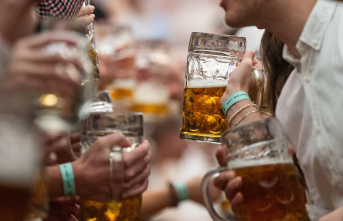In its analysis, published ahead of World Water Day and the UN Water Conference in New York on Wednesday, Unicef International speaks of a "triple water crisis" in these countries - due to a lack of drinking water and sanitation, high child mortality from diseases caused by dirty water water and high climate and environmental risks.
"Africa is facing a water catastrophe," warned UNICEF program director Sanjay Wijesekera. "Devastating storms, floods and historic droughts are already destroying facilities and homes, contaminating water sources, causing hunger crises and spreading disease." Children are particularly affected.
In the ten African hotspot countries, almost a third of children do not have access to at least a basic supply of clean water at home, and two-thirds do not even have basic sanitation facilities. A quarter of children have no choice but to use the great outdoors as a toilet. Hygiene is also limited, as three quarters of the children cannot wash their hands with soap and water at home.
As a result, these countries also bear the greatest burden of child deaths from diseases such as diarrhea caused by inadequate water, sanitation and hygiene.
Climate change and conflict are exacerbating the water crisis. For example, in Burkina Faso, attacks on water facilities as a tactic to displace people have increased. In 2022, 58 water points were reported to have been attacked, compared to three in 2020. As a result, more than 830,000 people lost access to safe drinking water last year.











